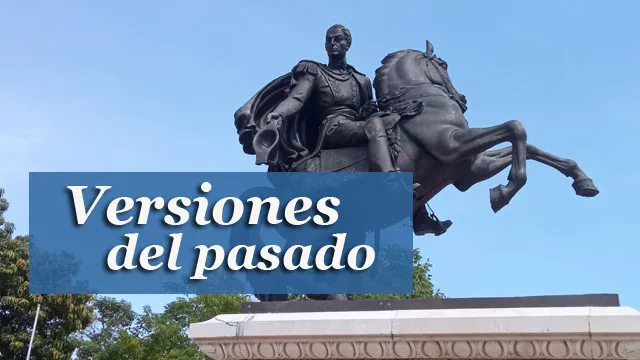
Saludos. Esta semana los amigos de @humanitas nos dejan una invitación muy interesante para intercambiar opiniones sobre “la historia”.
Mi interés por la historia surgió cuando comencé los estudios universitarios en el Pedagógico de Caracas. En ese entonces me había inscrito en la especialidad de geografía y como complemento veíamos muchas materias de historia universal y de Venezuela. De allí egresé como profesor de Geografía y Ciencias Sociales.
Sin embargo, por esas cuestiones del azar comencé a trabajar como profesor de historia, no de geografía y allí me quede. Me vi obligado a ampliar mi formación de modo autodidacta.
La historia como todas las ciencias sociales no es una calle de sentido único. Cada suceso de los que se han puesto en la mira de los historiadores puede ser interpretado de muchas maneras. En cierto sentido pudiéramos decir, sin ser exagerados, que lo que conocemos como “historia” son versiones transitorias a las que se ha llegado luego de someter a interpretación las fuentes disponibles.
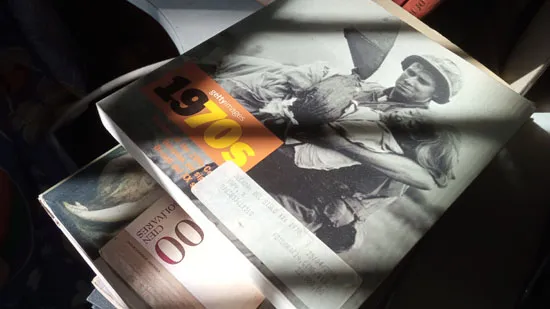
Uno de los grandes problemas del conocimiento histórico son las fuentes, las que se van haciendo más difusas a medida que nos alejamos en el tiempo.
En nuestro presente contamos con una gran cantidad de fuentes, existen documentos de todo tipo, cualquiera deja testimonios de acontecimientos cotidianos con su celular. Esto facilita mucho el trabajo de los historiadores.
Pero si nos remontamos miles de años hacia atrás encontraremos que esas fuentes no son tan abundantes, por lo que en el conocimiento de esos tiempos remotos está presente un gran componente especulativo.
El mayor problema del conocimiento histórico es lo que se ha llamado “el presentismo”, esto es, interpretar el pasado con los ojos del presente. Es imposible para los historiadores despojarse de toda la carga cultural que los induce a sacar unas conclusiones en vez de otras. No tenemos una máquina del tiempo que nos traslade a los períodos antiguos para poder constatar cómo se vivía en esos tiempos.
Entre las preguntas generadoras dejadas por los amigos de la iniciativa hay una realmente problemática: ¿Acaso el mismo hecho de relatar la historia desde cierta perspectiva no sería de cierto modo modificarla?
El pasado es inmodificable, lo que yo viví en mi niñez no tengo forma de cambiarlo, no hay forma de que pueda intervenir de nuevos esos acontecimientos para hacer que ocurran de otro modo. No puedo tener otros padres, ni otra casa, ni otra cultura. A lo más que puedo llegar es a tratar de interpretarlo de diferentes modos, por lo que mis conclusiones sobre la infancia que viví pueden cambiar a través del tiempo. En una época puedo haberla visto trágica y en otra benévola.
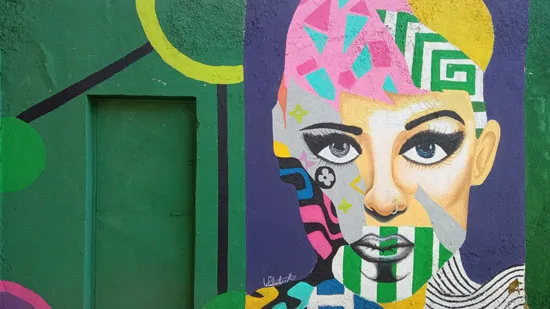
De manera similar puede ocurrir con los acontecimientos históricos, se pueden hacer otras interpretaciones y se pueden imponer nuevas narrativas. En Venezuela tenemos un buen ejemplo de cómo opera eso.
Con la llegada de la revolución bolivariana sus ideólogos se propusieron imponer una nueva narrativa histórica. Para ello han hecho un sistemático trabajo de desmontaje de la narrativa que habíamos conocido. Uno de los grandes objetivos de esta revolución es que las generaciones futuras asimilen una idea según la cual la historia nuestra comienza con la llegada de la revolución. Para ello se van desapareciendo de los textos escolares contenidos que en otros momentos fueron relevantes.
Para los menores de veinte años las referencias a la vida en el período democrático son casi inexistentes y cuando las hay son para reforzar una idea nefasta de lo que fue ese período. De igual modo ocurre con todo lo relacionado con el período de la conquista y la colonia. La tendencia de la nueva narrativa revolucionaria es a no encontrar nada de valor en esos tiempos, quieren imponer una visión donde lo único que pueda haber allí sea oscuridad y tragedia.
El conocimiento histórico nunca será totalmente definitivo, se puede decir que está en permanente construcción. Los historiadores son expertos en plantearse nuevas interrogantes, en leer entre líneas lo que otros dejaron pasar. Esa revisión permanente arroja luces para tener una idea más clara del pasado.
Los amigos de la iniciativa también preguntan sí tenemos algún momento histórico favorito. A mí me encanta todo lo relacionado con eso que llamamos prehistoria, que es el tiempo donde hay menos fuentes y donde se presenta la mayor dificultad para imaginar la vida en aquellos lejanos momentos.
Un asunto que me resulta fascinante es aquel momento cuando un grupo de mujeres descubrió la agricultura. Tuvo que haber sido un grupo de mujeres las que hace unos diez mil años comprendieron el proceso de germinación de la semilla. Ellas eran las que pasaban más tiempo en los sitios, observando, analizando, interpretando... Por su condición de madres se les hacía difícil abocarse a las labores de caza, las que realizaban mayoritariamente los hombres.
Sin esa observación la humanidad no hubiese podido avanzar. La agricultura fue un paso trascendental. Permitió que se profundizara el proceso de sedentarización, el que a su vez permitió el crecimiento de los grupos humanos, el desarrollo de las ciudades, y el desarrollo de la cultura humana…
Una vez más agradezco a los amigos de la comunidad @humanitas por crear estos espacios para la reflexión. Para darle continuidad a la iniciativa invito a la amiga @belkisa758.
Gracias por tu tiempo.


Greetings. This week the friends of @humanitas leave us a very interesting invitation to exchange views on "history".
My interest in history started when I began my university studies at the Pedagogical University of Caracas. At that time I had enrolled in the specialty of geography and as a complement we saw many subjects of universal and Venezuelan history. From there I graduated as a professor of Geography and Social Sciences.
However, by chance I started working as a history teacher, not geography, and I stayed there. I was forced to broaden my education in a self-taught way.
History, like all social sciences, is not a one-way street. Every event that has been brought to the attention of historians can be interpreted in many ways. In a certain sense we could say, without exaggeration, that what we know as "history" are transitory versions that have been arrived at after submitting the available sources to interpretation.
One of the great problems of historical knowledge are the sources, which become more diffuse as we move back in time.

In our present we have a large number of sources, there are documents of all kinds, anyone can leave testimonies of daily events with their cell phone. This makes the work of historians much easier. But if we go back thousands of years we will find that these sources are not so abundant, so that in the knowledge of those remote times a great speculative component is present.
The greatest problem of historical knowledge is what has been called "presentism", that is, interpreting the past with the eyes of the present. It is impossible for historians to rid themselves of all the cultural baggage that induces them to draw some conclusions rather than others. We do not have a time machine that takes us back to ancient periods to see how life was lived in those times.
Among the generating questions left by the friends of the initiative, there is a really problematic one: Wouldn't the very fact of relating history from a certain perspective be in some way modifying it?
The past is unchangeable, what I lived in my childhood I have no way to change it, there is no way I can intervene again those events to make them happen differently. I cannot have other parents, nor another house, nor another culture. The most I can do is try to interpret it in different ways, so my conclusions about the childhood I experienced may change over time. In one era I may have seen it as tragic and in another as benevolent.
In a similar way it can happen with historical events, other interpretations can be made and new narratives can be imposed. In Venezuela we have a good example of how this works.
With the arrival of the Bolivarian revolution, its ideologues set out to impose a new historical narrative. To this end, they have systematically dismantled the narrative we had known. One of the great objectives of this revolution is that future generations assimilate the idea that our history begins with the arrival of the revolution. To this end, contents that were relevant in other times are disappearing from school textbooks.

For children under twenty years of age, references to life during the democratic period are almost nonexistent, and when they do exist, they are to reinforce an ill-fated idea of what that period was like. The same happens with everything related to the period of the conquest and the colony. The tendency of the new revolutionary narrative is to find nothing of value in those times, they want to impose a vision where the only thing that can be there is darkness and tragedy.
Historical knowledge will never be totally definitive, it can be said that it is under permanent construction. Historians are experts in asking new questions, in reading between the lines of what others have missed. This permanent revision sheds light to have a clearer idea of the past.
Friends of the initiative also ask if we have a favorite historical moment. I love everything related to what we call prehistory, which is the time where there are fewer sources and where it is most difficult to imagine life in those distant times.
One subject that I find fascinating is that time when a group of women discovered agriculture. It must have been a group of women some ten thousand years ago who understood the process of seed germination. They were the ones who spent the most time at the sites, observing, analyzing, interpreting.... Because they were mothers, it was difficult for them to devote themselves to hunting, which was mostly done by men.
Without this observation, humanity would not have been able to advance. Agriculture was a transcendental step. It allowed the process of sedentarization to deepen, which in turn allowed the growth of human groups, the development of cities, and the development of human culture...
Once again I thank the friends of the @humanitas community for creating these spaces for reflection. To give continuity to the initiative I invite my friend @belkisa758.
Thank you for your time.
Translated with www.DeepL.com/Translator (free version)

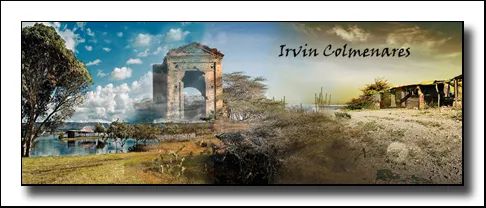


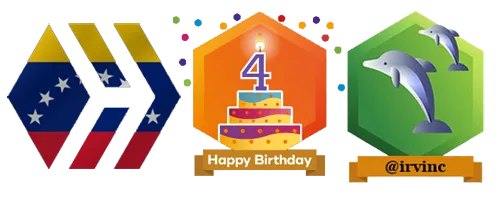

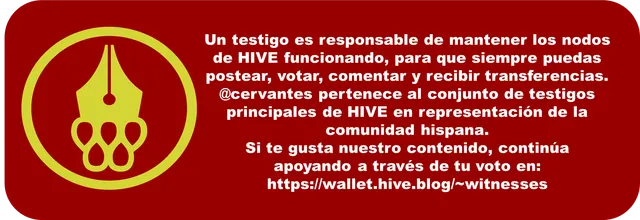
Te invito a apoyar este proyecto como witness y a formar parte de esta gran comunidad uniéndote a su Discord en el siguiente enlace:
Discord de la comunidad Cervantes

You can vote for @ocd-witness, with HiveSigner or on Hive Witnesses.


